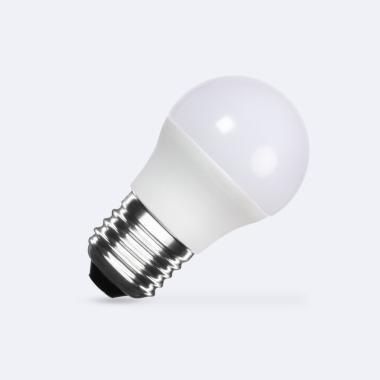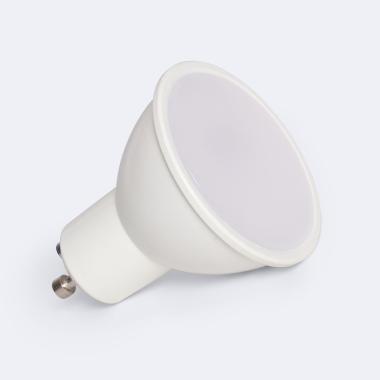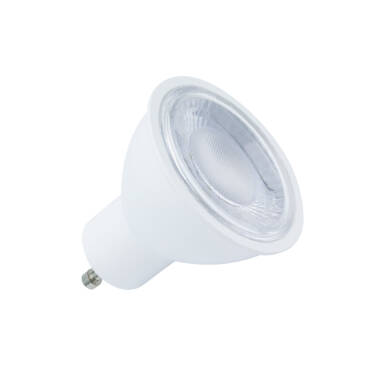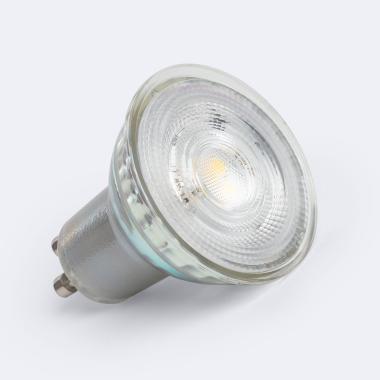LED bulbs
Our featured products from LED bulbs
- -18%

Range Essential
Before 1,11 €
0,91 €
- Power 6 W
- Tension 220-240V AC
- Luminosity 550 lm
3 options - -14%

Range Essential
Before 1,41 €
1,21 €
- Power 7 W
- Tension 220-240V AC
- Luminosity 600 lm
3 options - -10%

Range Essential
Before 2,02 €
1,82 €
- Power 7 W
- Tension 220-240V AC
- Luminosity 630 lm
3 options - -12%

Range Advanced
Before 2,53 €
2,23 €
- Power 7 W
- Tension 220-240V AC
- Luminosity 700 lm
3 options
About LED bulbs
LED bulbs are the perfect alternative to halogen and energy saving bulbs. In our online shop you will find high quality bulbs for all kinds of uses, both domestic and professional, and at very affordable prices.
Advantages of LED bulbs
LED bulbs are a significant improvement over bulbs using other technologies such as halogen or fluorescent bulbs. In general, they have very low energy consumption, are maintenance-free, have a long service life, do not use toxic substances such as mercury and can also be recycled.
On the other hand, LEDs are very versatile and can be manufactured in almost any shape. For this reason, we can find models with a wide variety of shapes beyond the typical globe, candle or tube-shaped bulbs.
Parts of a light bulb
In general, any light bulb consists of 3 basic elements:
Socket: this is the connector that joins the bulb to the socket. The most popular are E27, E14, GU10, GU5.3, G53, G9 or G4.
Heatsink: Its function is to eliminate the heat generated by the bulb. Inside we can find the driver, an electronic device that adapts the electrical current from the mains to that required by the LEDs.
Diffuser: This is responsible for adjusting the size of the light beam emitted. Depending on its shape, the light will be emitted with a greater or lesser opening angle. Thus we have globe type bulbs that diffuse the light very widely and others that concentrate the light in smaller areas.
Points to consider when buying LED bulbs
When purchasing our bulbs we must take into account several things, but to make the right choice we can look at these 3 characteristics: the type of socket, the brightness and colour of the light.
Knowing the socket is essential so that our new bulb can be connected to the luminaire without any problems.
Brightness does not indicate the amount of light emitted by the LED bulb. This value is measured in lumens (more lumens, more light). It should be noted that with LEDs the power only indicates the consumption and not the amount of light.
The colour or colour temperature of the light will be chosen depending on the use and the space where the bulb will be used. Normally cool lights are used in spaces such as kitchens or offices, warm tones for living rooms and bedrooms. Neutral lights are a bit of an all-rounder, but are very popular in bathrooms. However, the choice of one or the other also depends on individual taste.
Is it worth switching to LED bulbs?
As we have already seen, LED bulbs consume less energy, offer a better quality of light and last longer than traditional bulbs. In addition, they are now very affordable, which makes them an investment that will soon pay for itself.
Can any bulb be replaced by an LED bulb?
Yes, we only have to make sure that the socket and wattage are correct. We have models available in a multitude of sockets, the most popular being: E27, E14, GU10 and GU5.3. We can also find bulbs that work at 220V ac and 12V or 24V dc among others.
Are dimmable LED bulbs available?
Of course, dimmable versions of many models are now available. We just need to make sure that our dimmer is compatible with LEDs.
Which bulbs consume less energy LED or energy-saving bulbs?
LED bulbs are much more efficient and will allow you to save up to 50% compared to energy saving bulbs.
How long do LED bulbs last?
The lifetime of an LED bulb is much longer than other bulbs and is around 30,000 hours.
Which LED bulb is equivalent to a 50W bulb and which is equivalent to a 100W bulb?
To replace a 50W incandescent bulb, the most common is to use a 7W LED. To replace a 100W bulb, any 12-15W model will be more than enough.








